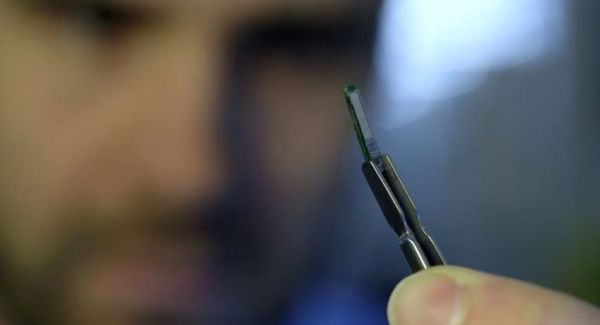
Doctors can implant his tiny sensor package developed by researchers at the Ecole
Polytechnique Fédérale de Lausanne in Switzerland. A battery worn on a
patch outside of the body gives it energy. When sensors detect chemical
indicators of a heart attack, the system sends a warning to a
Bluetooth-enabled device, such as a smartphone:
Often
in the hours before a heart attack, fatigued or oxygen-starved muscle
begins to break down, and fragments of a heart-specific smooth muscle
protein, the troponin mentioned above, are dumped into the blood. If
this can be detected before disruption of the heart rhythm, or the
actual attack, lifesaving preemptive treatment can be initiated sooner.
[...]
At the moment the device has a limited
number of sensors, but there is no theoretical ceiling on this. Nor is
there a limit to the kinds of enzymatic reactions or other detectors
that could be used with those sensor channels. In the muscle breakdown
scenario, for example, multiple products are in fact continuously
generated in a tissue-specific manner which can give valuable
information to athletes, and weekend enthusiasts alike. Ions and
respiratory gases in the blood at different body locations can also be
mapped.
 Doctors can implant his tiny sensor package developed by researchers at the Ecole
Polytechnique Fédérale de Lausanne in Switzerland. A battery worn on a
patch outside of the body gives it energy. When sensors detect chemical
indicators of a heart attack, the system sends a warning to a
Bluetooth-enabled device, such as a smartphone:
Doctors can implant his tiny sensor package developed by researchers at the Ecole
Polytechnique Fédérale de Lausanne in Switzerland. A battery worn on a
patch outside of the body gives it energy. When sensors detect chemical
indicators of a heart attack, the system sends a warning to a
Bluetooth-enabled device, such as a smartphone:
No comments:
Post a Comment